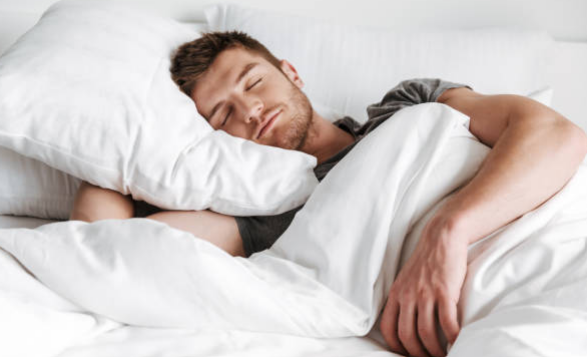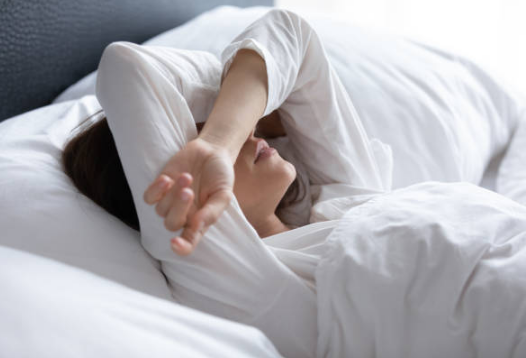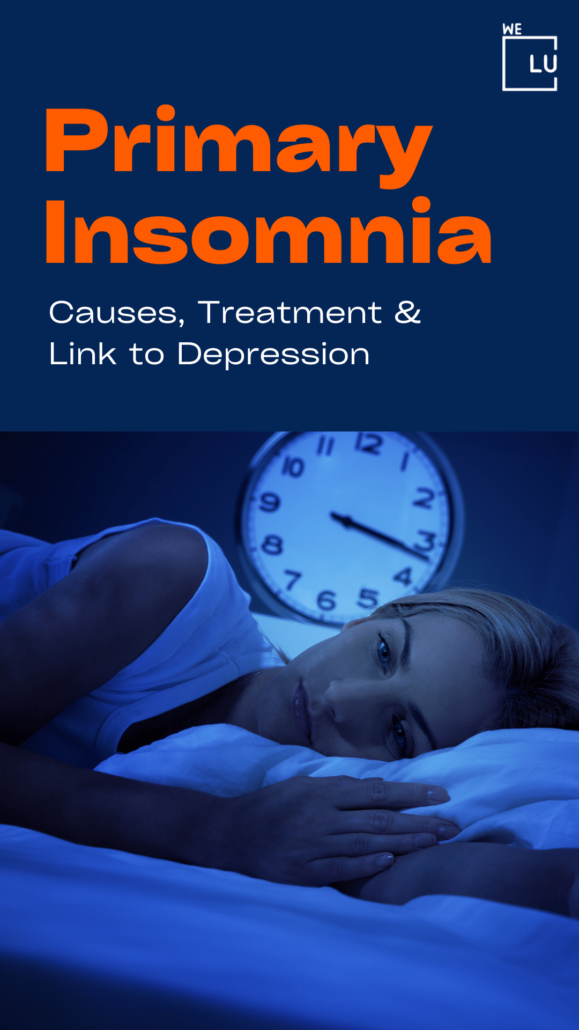Delayed Sleep Phase Syndrome
Delayed Sleep Phase Syndrome (DSPS) stands as a unique and intriguing phenomenon that challenges our understanding of the body’s circadian rhythm. This article delves into the intricate landscape of DSPS, shedding light on its distinctive symptoms and underlying causes. As a disorder that disrupts the conventional sleep-wake cycle, DSPS poses significant implications for those affected, influencing their daily lives and overall well-being.
From its elusive symptoms, such as persistent nighttime alertness and daytime fatigue, to the complex interplay of genetic predispositions and environmental factors that contribute to its development, we embark on a journey to uncover the multifaceted nature of DSPS. By examining the latest research, clinical insights, and personal experiences, we aim to gain a comprehensive understanding of this disorder and offer valuable insights for both individuals grappling with its challenges and the medical community dedicated to providing effective solutions.
By choosing We Level Up Treatment Center, you’re placing your well-being in the hands of dedicated professionals who can help you overcome DSPS and achieve improved sleep patterns. Your path to better sleep and a better quality of life starts here.
What is Delayed Sleep Phase Disorder?
Delayed Sleep Phase Disorder (DSPD), also known as Delayed Sleep Phase Syndrome, is a sleep disorder characterized by a persistent and significant delay in a person’s circadian rhythm, which results in a misalignment between their desired sleep schedule and the natural sleep-wake cycle. Individuals with DSPD experience difficulty falling asleep and waking up at conventional or socially acceptable times, disrupting their daily routine and activities.
In individuals with DSPS, their circadian rhythm is shifted significantly later than the conventional or societal sleep-wake schedule. This results in difficulty falling asleep and waking up at socially acceptable times. People with DSPS often struggle to fall asleep until the early morning hours (such as 2 AM to 6 AM) and find it challenging to wake up early in the morning.
Despite the delayed sleep onset, individuals with DSPS typically experience a consistent and regular sleep duration once they do fall asleep. This contrasts with insomnia, where the issue lies in the inability to achieve sufficient sleep regardless of bedtime.
DSPS can significantly impact daily life, as individuals with the disorder may find it difficult to meet the demands of work, school, and social activities that follow a typical schedule. This misalignment between their internal clock and societal expectations can lead to chronic sleep deprivation, daytime sleepiness, reduced cognitive performance, and impaired overall functioning.
Don’t let Delayed Sleep Phase Syndrome hold you back any longer. Take the step towards better sleep and well-being by exploring the specialized treatment options offered at We Level Up Treatment Center. Your journey to improved sleep starts here.


Skip To:
Learn More:
Get Help. Get Better. Get Your Life Back.
Searching for Accredited Dual Diagnosis Mental Health Centers Near You?
Even if therapy failed previously, or are in the middle of a difficult crisis, we stand ready to support you. Our trusted behavioral health specialists will not give up on you. When you feel ready or just want someone to speak to about counseling alternatives to change your life call us. Even if we cannot assist you, we will lead you to wherever you can get support. There is no obligation. Call our hotline today.
FREE 24/7 Dual Diagnosis Mental Health Services HotlineDelayed Sleep Phase Syndrome Fact Sheet
What is Delayed Sleep Phase Syndrome? Delayed Sleep Phase Syndrome (DSPS), also known as Delayed Sleep Phase Disorder, is a sleep disorder characterized by a consistent and significant delay in a person’s internal circadian rhythm. This results in difficulty falling asleep and waking up at conventional or socially acceptable times.
Symptoms of Delayed Phase Sleep Disorder:
- Persistent difficulty falling asleep at a typical bedtime.
- Waking up significantly later than desired or necessary.
- Maintaining a consistent sleep duration once asleep.
- Daytime sleepiness, fatigue, and reduced alertness.
- Impaired performance at work, school, or daily activities.
- Difficulty meeting societal demands and obligations due to the misalignment of the sleep-wake cycle.
Causes of Delayed Sleep Phase Disorder:
- Genetic predisposition: Family history of sleep disorders or altered circadian rhythms.
- Environmental factors: Exposure to light and darkness can impact the body’s internal clock.
- Developmental factors: Adolescents and young adults are more commonly affected, as circadian rhythms naturally shift later during these life stages.
Delayed Phase Sleep Disorder Diagnosis:
- A medical professional or sleep specialist assesses sleep patterns, daily routines, and symptoms.
- Sleep logs or diaries may be used to track sleep patterns over a period of time.
- Actigraphy, a wrist-worn device that monitors movement and light exposure, can provide additional data.
Delayed Sleep Phase Disorder Statistics
By analyzing the latest statistical findings and research, we aim to shed light on the broader landscape of DSPD, providing readers with a comprehensive grasp of its significance in the realm of sleep medicine and the broader context of public health. Whether you’re seeking insights into the prevalence of DSPD among specific populations or the implications of its delayed sleep-wake cycle, this exploration of statistics will illuminate the multifaceted nature of Delayed Sleep Phase Disorder.
- Prevalence: DSPD is estimated to affect around 0.15% to 16% of the general population, with higher prevalence rates reported among adolescents and young adults.
- Age Group Affected: DSPD tends to emerge during adolescence and young adulthood, with the average age of onset being around 19 years. It can, however, affect individuals of all ages.
- Gender: DSPD appears to affect both males and females, though some studies suggest a slightly higher prevalence among males.
- Comorbidity: DSPD is often associated with other sleep disorders, such as insomnia and mood disorders (e.g., depression and anxiety).
- Genetic Influence: There is evidence of a genetic predisposition to DSPD, as it can run in families. Individuals with a family history of sleep disorders may be at a higher risk.
- Impact on Daily Life: People with DSPD commonly experience impaired daytime functioning, including decreased cognitive performance, reduced alertness, and difficulties in meeting morning obligations.
6.8 million
GAD affects 6.8 million adults or 3.1% of the U.S. population, yet only 43.2% are receiving treatment.
Source: National Institute on Mental Health
19 million
19 million adults experience specific phobias, making it the most common anxiety disorder in America.
Source: ADAA, 2020
17.3 million
Major depressive disorder affects approximately 17.3 million American adults or about 7.1% of the U.S. population aged 18 and older.
Source: National Institute of Mental Health
Delayed Sleep Phase Syndrome Symptoms
Delayed Sleep Phase Syndrome (DSPS) is characterized by a specific set of symptoms related to the disruption of the sleep-wake cycle. These symptoms can significantly impact a person’s daily life and functioning.
These symptoms are chronic and persist over time. DSPS is a medical condition that should be diagnosed by a healthcare professional or sleep specialist based on a thorough assessment of sleep patterns, lifestyle, and potential underlying factors. If you suspect you or someone you know may have DSPS, seeking professional help is essential for accurate diagnosis and appropriate management.
Here are the common symptoms associated with DSPS:

- Difficulty Falling Asleep: Individuals with DSPS often have difficulty falling asleep at the desired or socially acceptable bedtime. They may find themselves lying awake in bed for hours before they can fall asleep.
- Delayed Sleep Onset: The hallmark symptom of DSPS is a persistent and significant delay in the time at which a person naturally falls asleep. This delayed sleep onset can lead to bedtime occurring in the early morning hours (e.g., 2 AM to 6 AM).
- Delayed Wake Time: As a result of the delayed sleep onset, individuals with DSPS tend to wake up much later than desired or necessary. This can lead to difficulty meeting morning obligations such as work, school, or appointments.
- Consistent Sleep Duration: Despite the delayed sleep onset, once individuals with DSPS fall asleep, they typically maintain a regular and consistent sleep duration, similar to individuals without the disorder.
- Daytime Sleepiness: Due to the misalignment of their sleep-wake cycle with societal norms, individuals with DSPS often experience excessive daytime sleepiness. This can lead to reduced alertness, difficulty concentrating, and overall reduced cognitive function during waking hours.
- Impaired Performance: The disrupted sleep-wake cycle can affect performance at work, school, and other daily activities. Reduced cognitive function, memory problems, and decreased productivity are common issues.
- Difficulty Adjusting: Attempting to adjust sleep schedules to conform to conventional timing can be challenging for individuals with DSPS, leading to frustration and feelings of isolation.
- Social Implications: DSPS can impact social interactions, as individuals may find it difficult to participate in evening activities or maintain a regular social life due to their delayed sleep schedule.
- Mood Disturbances: Prolonged sleep disruption can contribute to mood disturbances, including symptoms of depression and anxiety.

End the Emotional Pain. Get Your Life Back.
Feeling Depressed, Anxious or Struggling with Mental Health Illness? Get Safe Comfortable Mental Health Dual Diagnosis High-Quality Therapy From Counselors That Care. Begin Your Recovery Now.
Hotline (855) 940-6125Delayed Sleep Wake Phase Disorder
Delayed Sleep-Wake Phase Disorder (DSWPD), also known as Delayed Sleep Phase Syndrome (DSPS), is a sleep disorder characterized by a persistent shift in an individual’s circadian rhythm. This shift results in the person’s natural sleep-wake cycle being significantly delayed compared to the typical societal schedule. In essence, their internal body clock is out of sync with the standard day-night cycle, making it challenging for them to fall asleep and wake up at socially acceptable times.
Key features of Delayed Sleep-Wake Phase Disorder include:
- Delayed Sleep Onset: People with DSWPD have difficulty falling asleep until much later than desired, often in the early morning hours (e.g., 2 AM to 6 AM).
- Delayed Wake Time: As a consequence of the delayed sleep onset, individuals with DSWPD wake up significantly later in the day, making it difficult to adhere to conventional schedules.
- Consistent Sleep Duration: Once they fall asleep, individuals with DSWPD tend to maintain a regular and consistent sleep duration, similar to those without the disorder.
- Circadian Misalignment: The misalignment between the individual’s internal circadian rhythm and societal expectations can lead to various issues, such as daytime sleepiness, fatigue, and difficulties in meeting daytime obligations.
- Impact on Daily Life: People with DSWPD may find it challenging to maintain regular work, school, or social activities due to their delayed sleep schedule.
- Onset and Persistence: DSWPD often emerges during adolescence and young adulthood, when natural circadian rhythms tend to shift later. While it can persist into adulthood, some individuals may naturally shift to an earlier schedule as they age.
- Genetic and Environmental Factors: Both genetic predisposition and environmental factors play a role in the development of DSWPD. Family history of sleep disorders or altered circadian rhythms might increase the risk.
- Treatment: Behavioral interventions such as gradually adjusting sleep schedules earlier over time, maintaining a consistent wake time, and practicing good sleep hygiene can help manage DSWPD. Light therapy and, in some cases, melatonin supplementation or medication may also be considered.
- Quality of Life: DSWPD can impact an individual’s quality of life, leading to social challenges, reduced academic or work performance, and potential mood disturbances.
It’s essential to note that DSWPD is a medical condition and should not be confused with a simple preference for staying up late. Diagnosis is typically made by a healthcare professional or sleep specialist based on clinical evaluation and consideration of the individual’s sleep patterns and lifestyle.
At We Level Up Treatment Center, you’ll receive a comprehensive assessment and a tailored treatment plan that includes evidence-based strategies such as behavioral interventions and light therapy. Their commitment to individualized care ensures ongoing support and monitoring for optimal progress.
Causes of Delayed Sleep Phase
The exact causes of Delayed Sleep Phase Syndrome (DSPS), also known as Delayed Sleep-Wake Phase Disorder, are not fully understood. However, researchers believe that a combination of genetic, biological, and environmental factors contribute to the development of this sleep disorder. Here are some key factors that are thought to play a role:
- Genetic Predisposition: There is evidence to suggest that genetics plays a significant role in DSPS. Family history of sleep disorders or altered circadian rhythms can increase the likelihood of an individual developing DSPS. Certain genetic variations might affect how the internal body clock functions.
- Circadian Rhythm Regulation: DSPS is related to a disruption in the body’s circadian rhythm, the internal biological clock that regulates the sleep-wake cycle. Individuals with DSPS may have a naturally delayed circadian rhythm that is misaligned with the standard societal sleep schedule.
- Delayed Melatonin Release: Melatonin is a hormone that helps regulate sleep-wake cycles. People with DSPS may experience delayed release of melatonin in the evening, contributing to their difficulty falling asleep at conventional bedtimes.
- Light Exposure: Exposure to natural light and artificial light, especially in the evening, can influence the body’s internal clock. Modern lifestyles with increased evening screen time and exposure to artificial blue light from electronic devices may contribute to the development or exacerbation of DSPS.
- Developmental Changes: Adolescents and young adults are more susceptible to DSPS due to the natural delay in circadian rhythms that occurs during these life stages. This can result in a phase shift of the sleep-wake cycle, making it difficult to fall asleep and wake up at conventional times.
- Psychological Factors: Psychological factors like stress, anxiety, and depression can exacerbate sleep disorders, including DSPS. However, they are more likely to be outcomes of the disorder rather than direct causes.
- Social and Lifestyle Factors: Modern work and social demands often require adherence to early schedules, which can be particularly challenging for individuals with DSPS. Attempts to conform to societal schedules might lead to stress and further disruptions to the sleep-wake cycle.
- Delayed Light Exposure in the Morning: Insufficient exposure to natural morning light, which helps reset the circadian rhythm, can contribute to a delayed sleep-wake cycle.
It’s important to recognize that DSPS is a complex disorder with multifaceted causes, and each individual’s experience may be influenced by a unique combination of factors. Understanding these underlying mechanisms can guide treatment approaches, such as behavioral strategies, light therapy, and sometimes medication, to help manage the disorder and improve sleep quality. If you suspect you have DSPS, consult a healthcare professional or sleep specialist for proper diagnosis and personalized guidance.
First-class Facilities & Amenities
World-class High-Quality Mental Health Services & Behavioral Health Substance Abuse Treatment
Rehab Centers TourRenowned Mental Health Centers. Serene Private Facilities. Inpatient Rehab Programs Vary.
Mental Health Helpline (855) 940-6125Proven recovery success experience, backed by a Team w/ History of:
15+
Years of Unified Experience
100s
5-Star Reviews Across Our Centers
10K
Recovery Successes
- Comprehensive Dual-Diagnosis Treatment
- Complimentary Family & Alumni Programs
- Coaching, Recovery & Development Events
- Comfortable Onsite Medical Detox Center
Delayed Sleep Phase Syndrome ADHD
Delayed Sleep Phase Syndrome (DSPS) and Attention-Deficit/Hyperactivity Disorder (ADHD) are two distinct conditions that can sometimes coexist and interact, leading to a unique set of challenges for individuals affected by both. Here’s an explanation of how Delayed Sleep Phase Syndrome and ADHD can intersect:
Delayed Sleep Phase Syndrome (DSPS): DSPS is a sleep disorder characterized by a persistent and significant delay in an individual’s circadian rhythm. This means that their internal body clock is naturally shifted later than the conventional sleep-wake schedule. People with DSPS find it challenging to fall asleep and wake up at typical times, often experiencing difficulty falling asleep until the early morning hours and waking up later in the day.
Attention-Deficit/Hyperactivity Disorder (ADHD): ADHD is a neurodevelopmental disorder characterized by symptoms of inattention, hyperactivity, and impulsivity. Individuals with ADHD may have difficulty focusing, staying organized, managing time, and regulating their impulses. Sleep problems, including difficulties falling asleep, maintaining sleep, and experiencing restless sleep, can be common in individuals with ADHD.

DSPS and ADHD Interaction: For individuals with both DSPS and ADHD, the interaction between these conditions can exacerbate their challenges. Here are some ways in which they can influence each other:
- Delayed Sleep Impact on ADHD Symptoms: Sleep deprivation resulting from DSPS can worsen the symptoms of ADHD, such as inattention and impulsivity. Poor sleep quality can further compromise cognitive function and attention.
- Struggles with Daily Routine: The misalignment between the internal body clock (due to DSPS) and societal expectations can lead to difficulties in adhering to daily routines and responsibilities, which can be especially problematic for individuals with ADHD.
- Sleep Medications and Stimulants: Treating both DSPS and ADHD requires careful consideration, as certain medications used to manage ADHD symptoms (like stimulants) can potentially impact sleep quality. Balancing the treatment approaches is essential.
- Managing Time and Planning: Individuals with both DSPS and ADHD may find it challenging to effectively manage time, adhere to schedules, and plan activities due to the combined impact of these conditions.
Here’s a comparison table outlining the differences and interactions between Delayed Sleep Phase Syndrome (DSPS) and Attention-Deficit/Hyperactivity Disorder (ADHD):
| Aspect | Delayed Sleep Phase Syndrome (DSPS) | ADHD (Attention-Deficit/Hyperactivity Disorder) |
|---|---|---|
| Core Characteristics | Delayed sleep onset and wake time | Inattention, hyperactivity, impulsivity |
| Sleep Disruption | Difficulty falling asleep until late, waking up late | Sleep problems like restless sleep and difficulty falling asleep |
| Impact on Daily Routine | Challenges adhering to societal schedules | Difficulties with time management, organization, and planning |
| Cognitive Function | Impaired cognitive function due to sleep deprivation | Impaired focus, attention, and executive functioning |
| Mood and Emotions | Increased risk of mood disturbances | Emotional dysregulation, mood swings |
| Treatment Overlap | Behavioral interventions for sleep management | Behavioral therapies, medication for ADHD symptoms |
| Medication Considerations | Medications for sleep and ADHD require careful balancing | Stimulants used to treat ADHD may impact sleep quality |
| Coexistence Challenges | Combined impact can exacerbate difficulties | Interactions can complicate daily functioning |
| Importance of Comprehensive Approach | Treating both conditions requires a holistic approach | Managing symptoms in both domains is essential |
| Individual Variation | Severity and interaction may vary among individuals | Symptom presentation can vary widely |
Remember that this table provides a general comparison, and individual experiences can differ. If you or someone you know is dealing with both DSPS and ADHD, consulting with healthcare professionals or specialists in sleep medicine and ADHD is crucial for accurate diagnosis and personalized treatment.
World-class, Accredited, 5-Star Reviewed, Effective Mental Health Dual Diagnosis Programs. Complete Integrated Inpatient Rehab with Free Post Discharge Therapy Planning.
CALL (855) 940-6125End the Emotional Pain Rollercoaster. Gain Stability & Happiness Through Recovery Treatment. Start Mental Health Counseling Today. Get Free No-obligation Guidance by Behaviroal Health Specialists Who Understand Mental Health Recovery.
Diagnosis of Delayed Sleep-Phase Syndrome
The diagnosis of Delayed Sleep-Phase Syndrome (DSPS) typically involves a comprehensive evaluation by healthcare professionals or sleep specialists. Diagnosing DSPS involves a combination of clinical assessment, sleep logs, and sometimes objective measurements. Here’s an overview of the diagnostic process:
- Clinical Assessment: A detailed interview to understand sleep patterns and associated symptoms.
- Sleep Logs: Keeping a record of sleep and wake times for a week or two.
- Actigraphy: Monitoring sleep-wake patterns using a wrist-worn device.
- Chronotype Assessment: Identifying the individual’s natural preference for activity times.
- Differential Diagnosis: Ruling out other sleep disorders and medical conditions.
- Diagnostic Criteria: Assessing symptoms against recognized diagnostic criteria.
- Healthcare Professional: Seeking evaluation by a sleep specialist or healthcare provider.

It’s important to note that DSPS is a clinical diagnosis, and there is no specific laboratory test to confirm it. The diagnostic process involves ruling out other potential causes of sleep disruption and aligning the observed sleep patterns with the criteria for DSPS.
If an individual is suspected to have DSPS, seeking evaluation by a healthcare professional or sleep specialist is recommended. Proper diagnosis is crucial for effective management and treatment of the disorder.
At We Level Up Treatment Center, you can expect a comprehensive assessment of your sleep patterns and lifestyle, leading to a tailored treatment plan that fits your unique needs. Their holistic approach combines behavioral interventions, light therapy, sleep hygiene education, and, if necessary, carefully considered medication options to effectively address DSPS.
Delayed Sleep Phase Syndrome Treatment at We Level Up Treatment Center
At We Level Up Treatment Center, we offer comprehensive and personalized treatment for individuals dealing with Delayed Sleep Phase Syndrome (DSPS). Our specialized approach combines evidence-based strategies with compassionate care to help you regain control over your sleep-wake cycle and improve your overall well-being.
Our Approach:
- Expert Assessment: Our experienced team of sleep specialists will conduct a thorough assessment of your sleep patterns, medical history, and lifestyle factors. This evaluation allows us to tailor a treatment plan that addresses your unique needs.
- Behavioral Interventions: We employ behavioral strategies to help shift your sleep schedule gradually. This may involve adjusting bedtime, wake time, and exposure to light to align your circadian rhythm with your desired sleep-wake cycle.
- Light Therapy: Light exposure plays a crucial role in regulating the circadian rhythm. Our experts will guide you through personalized light therapy sessions that aid in resetting your internal body clock.
- Sleep Hygiene Education: We provide guidance on establishing healthy sleep habits and routines to optimize your sleep quality.
- Medication Consideration: In some cases, medication may be recommended to help regulate your sleep-wake cycle. Our medical team will carefully assess your situation and discuss appropriate options if necessary.
- Continuous Support: Throughout your treatment journey, we offer ongoing support and monitoring to track your progress and make any necessary adjustments to your plan.
Why Choose We Level Up:
- Specialized Expertise: Our dedicated sleep specialists have a deep understanding of sleep disorders and are committed to providing the best possible care.
- Holistic Approach: We consider your physical, mental, and emotional well-being in developing a comprehensive treatment plan.
- Individualized Care: Your treatment plan is customized to your unique needs, ensuring the most effective outcomes.
- Comfortable Environment: Our center offers a welcoming and comfortable setting where you can focus on your recovery.
- Proven Results: We have a track record of helping individuals overcome sleep disorders and achieve healthier sleep patterns.
If you’re struggling with Delayed Sleep Phase Syndrome, we’re here to support you on your journey toward improved sleep and a better quality of life. Contact us at We Level Up Treatment Center to learn more about our specialized DSPS treatment program and how we can help you regain control over your sleep patterns.
Experience Transformative Recovery at the We Level Up Treatment Center.
See our authentic success stories. Get inspired. Get the help you deserve.



Start a New Life
Begin with a free call to a behavioral health treatment advisor. Learn more about our dual-diagnosis programs. The We Level Up treatment center network delivers recovery programs that vary by each treatment facility. Call to learn more.
- Personalized Care
- Caring Accountable Staff
- World-class Amenities
- Licensed & Accredited
- Renowned w/ 5-Star Reviews
We’ll Call You
Popular FAQs about Delayed Sleep Phase Syndrome
-
What is Delayed Sleep Phase Syndrome (DSPS)?
Delayed Sleep Phase Syndrome (DSPS) is a sleep disorder characterized by a persistent delay in an individual’s circadian rhythm, causing them to have difficulty falling asleep and waking up at socially acceptable times. Their natural sleep-wake cycle is shifted later, often resulting in sleep onset during the early morning hours and difficulty waking up early.
-
What causes DSPS?
The exact cause of DSPS is not fully understood, but it is thought to result from a combination of genetic predisposition, circadian rhythm misalignment, and external factors such as light exposure. Family history, developmental changes (common in adolescents), and lifestyle choices can also play a role.
-
Is DSPS the same as being a night owl?
DSPS is not the same as being a night owl by choice. Night owls may prefer staying up late, but DSPS involves a natural and persistent shift in the circadian rhythm, making it challenging to adhere to conventional sleep schedules.
-
Can DSPS affect mental health?
Yes, DSPS can contribute to mood disturbances such as depression and anxiety due to disrupted sleep patterns. However, it’s important to note that while DSPS can impact mental health, it’s not a direct cause of mental health disorders.
8 Steps & Tips for Maintaining Your Mental Wellbeing Informative Video
Video Script
We at We Level Up FL are dedicated to personalized mental health services tailored to each person’s unique needs. Our experienced team collaborates closely with clients to create therapy programs that address their challenges and align with their goals. With empathy and support, we empower individuals to take an active role in their mental health journey by providing tools and strategies. We encourage exploration, self-discovery, and growth in a safe and nurturing environment. We understand that everyone is different, so we listen attentively and develop customized therapy plans based on individual concerns, strengths, and aspirations.
Search Delayed Sleep Phase Syndrome. Delayed Sleep Phase Disorder Symptoms and Causes. Drug & Alcohol Rehab / Detox & Mental Health Topics & Resources
Sources
- Chawla, Jasvinder. “Insomnia Medication.” Medscape, January 27, 2022. Sleeping Pills Overdose.
- Drug Enforcement Administration. “Benzodiazepines.” April 2020. Sleeping Pills Overdose.
- Singh, Abhinav. “Melatonin Overdose.” Sleep Foundation, March 18, 2022. Sleeping Pills Overdose.
- National Suicide Prevention Lifeline. “National Suicide Prevention Lifeline.” Sleeping Pills Overdose.
- Mind. “Sleeping pills and minor tranquillizers.” April 2021. Sleeping Pills Overdose.
- Marshall, Mallika. “Number of children overdosing on melaton[…] decade, study shows.” CBS News Boston, June 6, 2022. Sleeping Pill Overdose.
- Kang, Michael; Galuska, Michael A.; & Ghassemzadeh, Sassan. “Benzodiazepine Toxicity.” StatPearls, May 8, 2022. Can You Overdose on Sleeping Pills?
- U.S. National Library of Medicine. “Naloxone Nasal Spray.” MedlinePlus, July 15, 2021. Can You Overdose on Sleeping Pills?.
- Poison Control. “Get Poison Control Help.” 2022. Can You Overdose on Sleeping Pills?
- Heydari, Mostafa & Isfeedvajani, Mohsen Saberi. “Zolpidem dependence, abuse and withdrawal: A case report.” Journal of Research in Medical Sciences, November 2013. Can You Overdose on Sleeping Pills?
- Coping with Stress – Centers for Disease Control and Prevention